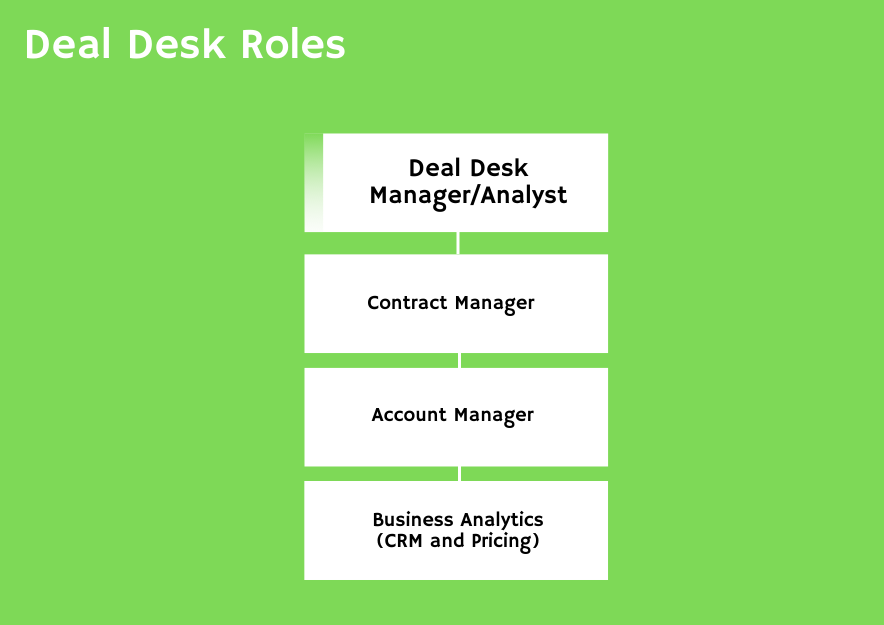Key takeaways:
- What is a deal desk? A deal desk is a centralized, cross-functional team designed to streamline the approval process for complex, high-value deals.
- How do deal desks improve efficiency? They reduce sales cycle times by up to 40% and enhance productivity by 20%, benefiting sales teams and clients alike.
- What role do deal desk analysts play? Deal desk analysts serve as advisors, facilitating communication across departments and ensuring non-standard deals are structured effectively.
- What are key practices for a successful deal desk? Clearly define roles, prioritize customer experience, and empower the team with authority and tools for efficiency.
- How can Wrike assist your deal desk? Wrike helps manage projects, tasks, and workflows to improve visibility and streamline the deal-closing process.
Imagine a high-value, non-standard deal shaking its way through your sales pipeline. Many stakeholders are involved — sales, operations, legal, and finance. You’re chasing stakeholders for approvals and sign-offs, and you run into lengthy negotiations. Suddenly the deal slows, making the client unsatisfied, or worse, the deal doesn’t end up closing at all.
How do you set up your team to prevent hiccups and close deals efficiently and effectively? The answer is a deal desk.
What is a deal desk?
A deal desk is a centralized, cross-functional team that plays a part in facilitating high-value deals (specifically complex ones) through the pipeline. Think of it as your one-stop shop for closing deals effectively in a reasonable timeframe.
What is the purpose of a deal desk?
A deal desk’s primary purpose is to ensure that complex high-value deals cruise their way through the approval process and get signed. By centralizing representation from each of the stakeholders, bottlenecks in the sales cycle are reduced or eliminated. The process is not only more efficient internally but also externally from a client perspective.
Research shows that successfully implemented deal desks reduce sales cycle times by up to 40% and enhance sales productivity by up to 20%. These productivity boosts are a win-win for the sales team, internal stakeholders, and clients.
Alongside efficiencies, deal desks are beneficial because they provide insight, visibility, and consistency across an organization. Financial insights can be collected and provided by the deal desk team and shared among departments for revenue forecasting. In addition, deal desk metrics, such as profitability, average deal size, and win rates, can be measured and reviewed. Standardized approval processes, a professional services contract template, and pricing templates create consistency throughout the organization when managed by one centralized location such as the deal desk.
What does a deal desk analyst do?
So, who runs the deal desk? Teams are generally made up of deal desk managers and deal desk analysts, though titles may vary.
A deal desk analyst is a crucial member, acting as a trusted advisor to the sales team, working as the primary point of contact amongst various departments, and constructing how non-standard deals should work. These roles are non-client facing but serve internal departments.
The deal desk analyst works closely with all departments on their respective responsibilities throughout the sales process to contribute to team alignment. This includes ensuring deals are correctly constructed, offering guidance on pricing to maximize revenue, and addressing complexities around the non-standard contract terms while ensuring the whole process is carried out promptly. Process improvement, active collaboration with key stakeholders, operational support, and strategic deal execution are at the heart of this role.
Deal desk team structure
Here is an example of some of the roles that could be involved in the deal desk:

How to set up a winning deal desk
Much like anything within your organization, your deal desk’s success as an effective asset depends on how it’s structured and set up.
Consider these best practices to set up a winning deal desk — and avoid some of the common reasons why deal desks fail:
- Clearly define the responsibilities of all members of the deal desk, as well as associated stakeholders. No two deal desks are the same, and the setup and structure may vary across organizations. It’s essential to clearly define the roles and responsibilities of all deal desk members, in addition to the expectations of each stakeholder that is going to work with the deal desk team.
- Keep your customer front of mind throughout the sales process. The deal desk should not only benefit internal teams working with one another, but it should also create a positive experience for all prospective clients. Understanding your buyer’s journey is a critical component of your strategy and processes.
- Empower your deal desk by ensuring they have the authority and tools needed to get the work done. After you’ve established the responsibilities of the deal desk, make sure the team has the necessary authority to carry out their roles effectively. For example, if you agree that your deal desk can have the final sign-off on a non-standard pricing agreement, let them exercise their authority here. Your deal desk team will also need tools to help them stay organized and work efficiently, so consider using a strong deal desk software, or research what is sales automation software, and which option is best for your team.
How to use Wrike as your deal desk software
Speaking of tools, Wrike can help your deal desk get more high-value deals across the finish line. Beyond functioning as a CRM, Wrike supports your team in achieving increased visibility and peak efficiency with everything from templates to streamlined workflows.
Here’s a quick look at how you can use Wrike as your deal desk software:
- Create a new project for the specific deal your team is working on, and choose a default view (list, board, table, or Gantt chart)
- Queue up tasks that need to be accomplished as part of that deal and negotiation
- Assign team members and deadlines to each task
- Monitor your progress as you hustle to close that deal
As you use Wrike more and more, you can avoid reinventing the wheel by re-using existing workflows and templated documents.
Getting clients and customers to sign on the dotted line of a major deal can be stressful, but the good news is that Wrike can take a little bit of the pressure off. Start your free trial today.




